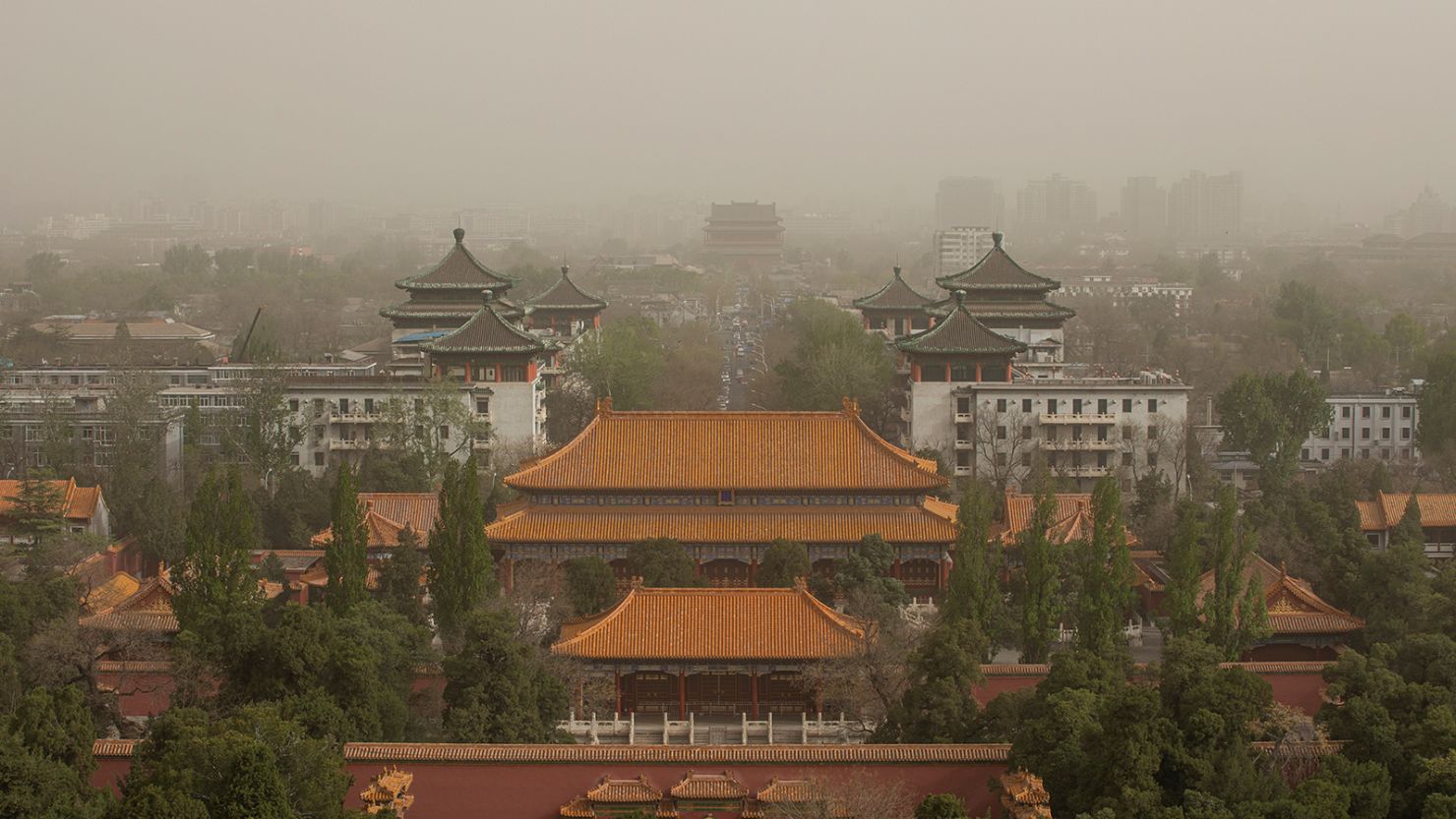China’s capital, Beijing shrouded in a hazardous sandstorm
The day started in China’s capital Beijing on Sunday morning covered with thick dust that carried enormously high levels of dangerous particles, as a second sandstorm hit the city in two weeks due to winds from drought-hit Mongolia and northwestern China.

The day started in China’s capital Beijing on Sunday morning covered with thick dust that carried enormously high levels of dangerous particles, as a second sandstorm hit the city in two weeks due to winds from drought-hit Mongolia and northwestern China.
Visibility in the city was poor, as the tops of some towers were hidden by the sandstorm, and pedestrians were enforced to cover their eyes due to the blowing dust that swept through the streets. “It’s rather serious today. There’s always a day or two like this (of pollution or dust) each month”, stated Mr Fan, one of the residents.
Beijing’s official air quality index touched a maximum level of 500 on Sunday morning, as the floating particles called PM10 exceeding 2,000 micrograms per cubic metre in some districts.
According to readings of smaller PM2.5 particles, it was above 300 micrograms per cubic metre, which is significantly higher than China’s standard of 35 micrograms.
PM2.5 particles are particularly harmful as they are very tiny and can enter the bloodstream, whereas PM10 is a bigger particle that can enter and affect the lungs.
A yellow alert was issued by the China Meteorological Administration on Friday, threatening that a sandstorm was entering from Mongolia into northern Chinese provinces. The provinces include Inner Mongolia, Shanxi, Liaoning and Hebei, which surrounds Beijing.
Read more Australians notified of deadly spider outbreak after flooding
As stated by the meteorological office, the recent sandstorms to strike Beijing originated from Mongolia, where comparatively warmer temperature this spring and less rain resulted in creating favourable conditions for sandstorms.








